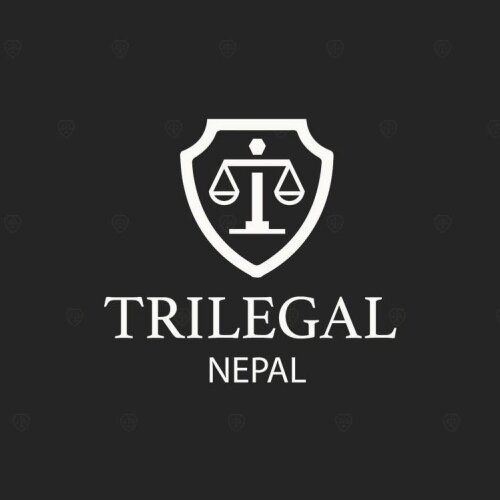Best Arrests & Searches Lawyers in Nepal
Share your needs with us, get contacted by law firms.
Free. Takes 2 min.
Or refine your search by selecting a city:
List of the best lawyers in Nepal
About Arrests & Searches Law in Nepal
The laws governing arrests and searches in Nepal are critical components of the criminal justice system aimed at balancing law enforcement needs with personal freedoms. The primary legislation that oversees arrests and searches is the Constitution of Nepal, supplemented by the Criminal Procedure Code. These laws lay down the fundamental rights of individuals against arbitrary arrests and unlawful searches, emphasizing the protection of privacy and security of citizens. Law enforcement agencies must adhere to prescribed procedures, including obtaining necessary warrants and respecting constitutional rights during arrests and searches.
Why You May Need a Lawyer
In Nepal, engaging a lawyer specializing in arrests and searches can be crucial for several reasons. If you find yourself facing criminal charges or being investigated, a lawyer can ensure that your rights are protected throughout the process. Legal counsel can also be invaluable if you believe your privacy was violated through an unlawful search or if you are detained without proper cause. Additionally, a lawyer can help navigate the complexities of legal procedures and challenge any irregularities in court.
Local Laws Overview
Key aspects of the laws relevant to arrests and searches in Nepal include:
- Right to be Informed: A person must be informed of the grounds for their arrest at the time of being detained.
- Arrest Warrants: Except in certain exigent circumstances, law enforcement must have a warrant issued by a court to arrest an individual.
- Search Warrants: Similar to arrest warrants, searches generally require judicial authorization to ensure they are conducted lawfully.
- Protection Against Arbitrary Detention: Laws prevent the detention of individuals without sufficient legal grounds.
- Right to Legal Counsel: Arrested individuals have the right to consult with a lawyer and receive legal representation.
- Judicial Oversight: Detainees must be presented before a judicial authority within 24 hours (excluding travel time) of arrest.
Frequently Asked Questions
What should I do if I am arrested in Nepal?
Try to remain calm and ask for a lawyer immediately. Request to know the reason for your arrest and ensure your rights are respected.
Can the police search my house without a warrant?
Generally, police need a warrant to search your home unless there are urgent circumstances requiring immediate action to prevent harm or loss of evidence.
What is my right to privacy during a search?
You have the right against unlawful searches, which means law enforcement should conduct searches lawfully and with minimal invasion of privacy.
What should I do if I believe my rights were violated during an arrest?
Contact a lawyer immediately to discuss the potential for filing a complaint or seeking legal recourse through the judicial system.
How long can I be held in custody without being charged?
You should be presented before a judicial authority within 24 hours of arrest, excluding travel time, to determine the legality of your detention.
What constitutes an ‘illegal search’ in Nepal?
An illegal search refers to any search conducted without proper authorization or beyond the scope of a valid warrant.
Can I refuse to answer questions during an arrest?
You have the right to remain silent and should speak with a lawyer before answering any questions or signing any documents.
What documents should the police provide upon arrest?
The arresting officer should provide you with an arrest warrant or, at the very least, inform you of the reasons for your arrest.
Who can witness a search conducted by law enforcement?
During a search, it is advisable to have neutral witnesses present to ensure transparency and accountability in the search process.
How can I challenge an arrest or search in court?
Consult with a lawyer who can file a motion or petition before the appropriate court challenging the legality of the arrest or search.
Additional Resources
For individuals seeking guidance on matters related to arrests and searches in Nepal, consider consulting the following resources:
- The Nepal Bar Association: Provides legal assistance and resources.
- National Human Rights Commission Nepal: Offers support in cases involving rights violations.
- Local Legal Aid Centers: Provide free or affordable legal assistance to those in need.
- Community Law Centers: These centers can offer support and advice on legal matters.
Next Steps
If you require legal assistance in matters related to arrests and searches in Nepal, consider taking the following steps:
- Engage a Lawyer: Seek out a lawyer who specializes in criminal law and has experience with arrests and searches.
- Gather Documentation: Collect all relevant documents and evidence related to your case, such as arrest records, warrants, or witness statements.
- Seek Legal Advice: Meet with your lawyer to discuss your circumstances and explore your legal options.
- Follow Legal Procedures: Ensure all legal filings and procedures are handled diligently to strengthen your case.
- Stay Informed: Keep yourself updated on any developments in your case and maintain communication with your lawyer.
Lawzana helps you find the best lawyers and law firms in Nepal through a curated and pre-screened list of qualified legal professionals. Our platform offers rankings and detailed profiles of attorneys and law firms, allowing you to compare based on practice areas, including Arrests & Searches, experience, and client feedback.
Each profile includes a description of the firm's areas of practice, client reviews, team members and partners, year of establishment, spoken languages, office locations, contact information, social media presence, and any published articles or resources. Most firms on our platform speak English and are experienced in both local and international legal matters.
Get a quote from top-rated law firms in Nepal — quickly, securely, and without unnecessary hassle.
Disclaimer:
The information provided on this page is for general informational purposes only and does not constitute legal advice. While we strive to ensure the accuracy and relevance of the content, legal information may change over time, and interpretations of the law can vary. You should always consult with a qualified legal professional for advice specific to your situation.
We disclaim all liability for actions taken or not taken based on the content of this page. If you believe any information is incorrect or outdated, please contact us, and we will review and update it where appropriate.
Browse arrests & searches law firms by city in Nepal
Refine your search by selecting a city.

















